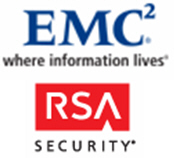Will RSA give EMC the respect it desires?


"EMC is where information lives and tomorrow EMC will be the company where information lives securely," said EMC Chairman and CEO Joe Tucci during the conference call after the market closed. What probably irritates Tucci is how EMC is still characterized as the "data storage maker" in the press, and among many customers. In its own press release detailing the RSA acquisition, EMC described itself as "EMC Corporation (NYSE:EMC), the leader in information management and storage..."
Today's press stories on the acquisition labeled EMC as follows:
Bloomberg: "EMC Corp., the world's biggest maker of storage for computers,...
Reuters: "EMC Corp. (EMC.N: Quote, Profile, Research), the world's largest data storage..."
MarketWatch: "Storage-technology giant EMC Corp. moved..."
News.com: "Data storage specialist EMC has agreed to acquire digital security company RSA Security..."
After 30 aquisitions totally nearly $7 billion, including many outside of the storage space, EMC still gets most of its estimated $11 billion in revenue for this year from storage sales, but the company wants to grow its other businesses--VMware, content management, resource management, storage virtualization and now security with RSA--into $1 billion operations. RSA's revenue for its last fiscal year ending December 31, 2005 was $310 million. The company has been busy with its own acquisitions, most recently PassMark Security, which focuses on online banking authentication, for $44.7 million, and Cyota, a provider of anti-fraud solutions to financial companies, for $145 million.
Some of EMC's more recent acquistions include:
ProActivity Software Solutions (June 19, 2006)--content management software for BPM
nlayers (June 7, 2006)--application discovery and mapping software
Interlink (May 11, 2006)--professional services firm, specializing in Microsoft environments a
Kashya (May 9, 2006)--enterprise-class data replication and data protection software
Authentica (February 27, 2006)--enterprise rights management
Internosis (January 9, 2006)--professional services for Microsoft environments
Captiva Software (December 30, 2005)--provider of input management solutions
Rainfinity (August 17, 2005)--provider of virtualization solutions for heterogeneous networked attached storage and file system environments
SMARTS (February 2, 2005)--event automation and real-time network systems management software
VMware (January 9, 2004)--Intel-based virtual computing software
Documentum (October 14, 2003)--enterprise content management software
LEGATO Systems, Inc. (July 8, 2003)--heterogeneous storage and content management
Now EMC is on the potentially slippery slope of being a many headed hydra with its grow new markets by acquisition strategy. Computer Associates went on an acquisition binge in the 1990's, but focused more on distressed companies. While EMC has carved out separate business units, such as VMware, Documentum and RSA to come, there is an overarching IT infrastructure theme.
Storage, virtualization, content management and security are part of an information lifecycle management fabric, and now EMC another larger piece of the puzzle. The question is whether EMC can integrate the products sets into more comprehensive, simplified solutions and grow each business on its own, given that the vast majority of customers aren't going to digest EMC's complete IT infrastructure menu.
I talked to Dennis Hoffman, vice president of information security at EMC about the acquisition. His team was set up in the middle of last year to develop a security strategy for EMC, beyond assessment and planning services, data protection and some embedded encryption in back up products.
"Our main hope with the RSA acquisition is to unify the inherent security in our products acclerate our drive to be the most secure information infrastructure," Hoffman said. "RSA is the owner of the industry-leading identity, encyption and key management technology. You have to secure the people and secure the data itself for times when access controls are not enough. The management of encryption keys is important."
Hoffman affirmed that RSA would be a standalone business unit, and operate under the RSA brand, similar to the way EMC has handled other larger acquisitions, such as VMware and Documentum. RSA comes along with the well established RSA Conference and RSA Labs, he said. RSA will continue to serve the broader market with its product portfolio. "RSA will be open and continue to operate like it is today," Hoffman said. "The big push is for interoperability and integration in an open way with all of our products. As with Documentum, Legato, Centura, SMARTS and VMware, we will continue our longstanding tradition of cooperating in technology development, sales and distribution with companies outside of EMC." As an example, HP and IBM are major distributors of VMware.
With RSA coming into the fold, Hoffman said EMC still has some holes to fill in the security area, specifically in the assessment of security information and policy compliance. "Frankly, we have always built through a combination of acquisition, partnership and internal development," Hoffman explained. "We will focus on internal development and partnerships going forward."
Hoffman didn't rule out more acquisitions, however, but said they would be of the smaller, "tuck-in" variety. As I wrote earlier this month, EMC is looking to gain respect, and validation via its stock market price, for its growth and expansion strategy over the last few years. It could be that the RSA deal could do the trick, if the security firm does become an accelerator for both its own business unit growth and for EMC's overall business...